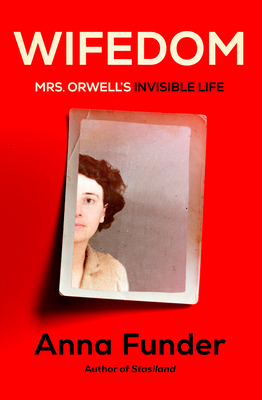What do you think?
Rate this book


This is the story of the marriage behind some of the most famous literary works of the 20th century —and a probing consideration of what it means to be a wife and a writer in the modern world
At the end of summer 2017, Anna Funder found herself at a moment of peak overload. Family obligations and household responsibilities were crushing her soul and taking her away from her writing deadlines. She needed help, and George Orwell came to her rescue.
"I’ve always loved Orwell," Funder writes, "his self-deprecating humour, his laser vision about how power works, and who it works on." So after rereading and savoring books Orwell had written, she devoured six major biographies tracing his life and work. But then she read about his forgotten wife, and it was a revelation.
Eileen O’Shaughnessy married Orwell in 1936. O’Shaughnessy was a writer herself, and her literary brilliance not only shaped Orwell’s work, but her practical common sense saved his life. But why and how, Funder wondered, was she written out of their story? Using newly discovered letters from Eileen to her best friend, Funder re-creates the Orwells’ marriage, through the Spanish Civil War and the Second World War in London. As she peeks behind the curtain of Orwell’s private life she is led to question what it takes to be a writer—and what it is to be a wife.
A breathtakingly intimate view of one of the most important literary marriages of the twentieth century, Wifedom speaks to our present moment as much as it illuminates the past. Genre-bending and utterly original, it is an ode to the unsung work of women everywhere.
464 pages, Hardcover
First published July 4, 2023
Orwell's work was essential in this task. It was a joy, even, revisiting his writing on the systems of tyranny 'with theft as their aim', and the 'vast system of mental cheating' that is doublethink. It was his insight... that allowed me to see how men can imagine themselves innocent in a system that benefits them, at others' cost... But his insight into the rapacity of power... never extended to relations between the sexes. Orwell stayed blind to the position of women, though he'd been buying girls for a few rupees a time.